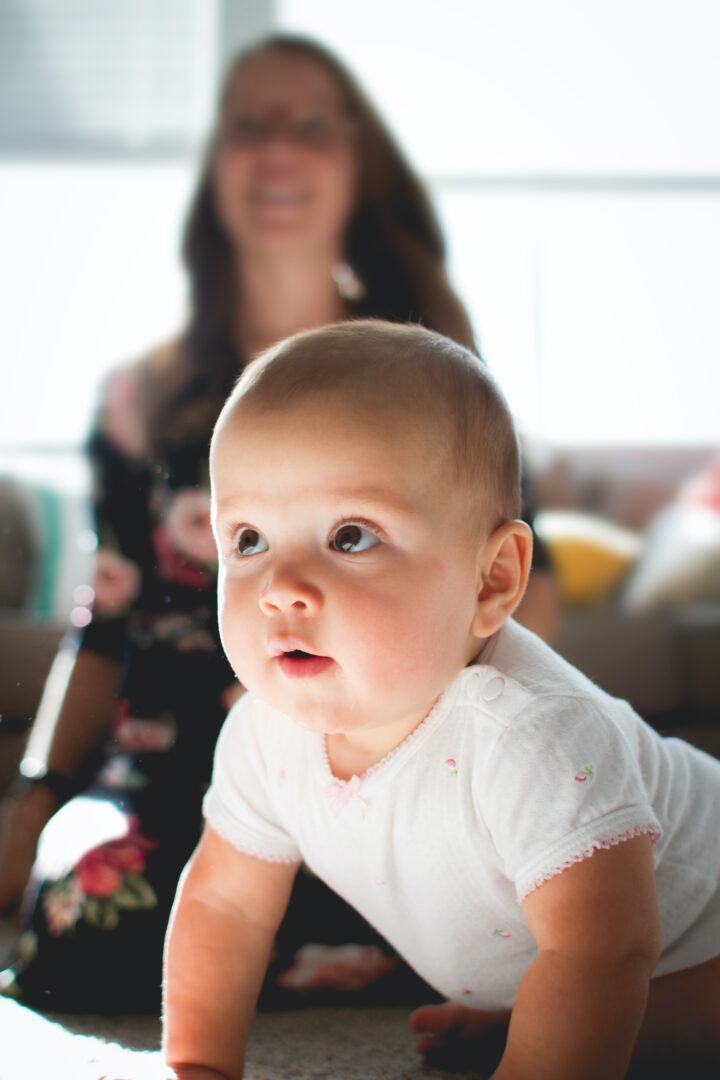Parenting tips
When do Babies Start to Walk?

Last Updated on October 12, 2024 by Joshua Isibor
When do babies start to walk? is a frequently asked question by most new parents around the world. Most times when we come across a baby crawling and cruising we tend to wonder when he/she will take the first step?
A child’s first year is full of events but the most anticipated one might be walking. Hence the question, “When will my baby start to walk.?”
When Should Babies Start to Walk?
Research has shown that babies usually take their first step between the 9th and 16th month. Not all babies start walking in the 9th month. Your first child might have walked when he was 10-months and probably you’re scared that the second is in its 13th month, but still crawling. The truth here is that every child reaches its milestone at a different time. There are several factors that may make a baby walk early or not. Of all, for your baby to start walking he/she must have contracted enough muscles.
The stages of walking
An old adage says, “for you to stand you must sit, for you to walk you must stand, and for you to run you must start walking.” This shows that life itself is in different stages. For a baby to start walking, he must have gone through and mastered other developmental milestones. These include:
Sitting Up
For a baby to start walking, he must learn how to sit properly. Within the periods of the 6th month, your baby should start hacking the puzzle to sit upright, using the muscle in his trunk.
Around this time, the 6th month, you can start teaching your child how to sit. When trying to teach the baby how to sit, ensure you’re close enough to prevent falling.
Pulling to Stand
Pulling to stand varies among toddlers still; some may start this around the 10th month. The leg actually needs lots of energy for a pull to stand to occur because 70% of our body mass is fixed on the hip, so the legs need lots of energy to lift the torso.
Cruising
This is when the child starts playing around the house with any furniture he/she sees. The time varies too for kids.
Holding Hands
Holding your baby’s hands while walking would help to improve the coordination and balancing of the child. It also adds fun to the walking process. when your child starts holding your hand for him to walk, just know that he would start walking alone soon.
Walking Alone
This is the final stage of completing the puzzle on how to walk. Usually, it starts with trying to move one leg forward and balancing the other leg. Here, the child may be falling too while trying to walk, but it’s all part of the process.
Why Do Babies Walk at Different Times?
One thing you should know is that babies also have emotions too. Some babies usually have this I can do it attitude; to them, the act of walking is a risk they are taking, and have to overcome. You can even perceive it, ranging from the way they interact with you, even as small as they are.
They don’t care if they fall. That’s why you’ll see some children fall as many times as possible when trying to walk. The beautiful part is that they see walking as one of the several fun things they do.
Not all babies have this type of personality, some also have the mentality of wait and see, an unintentional delay caused by fear of trying. These types are usually very cautious. This factor may be the reason why your child is delaying to walk.
Aside from this, there are other things too, which can affect the time it takes for babies to start walking.
• Birth Order:
Research has shown that babies tend to walk faster when they have older siblings around. So they may want to imitate what he/she is doing. It may be very difficult for your first child to start walking at 12months, but if you have other children let’s say from age 3-7, you’ll see your child become smarter. That’s why you see most children become smarter when they have older ones around to play with. That’s why it’s very important (and highly advised) for your child, even in the 8th month, to start school.
• Stature:
The bigger the size, the more difficult for the baby walking. This is because the baby would need to expend more energy to stand upright compared to one with a small stature.
Even when you look at fat people, you’ll notice that they may experience difficulty in walking or running at old age.
• Recurrent Ear Infections: If a child emerges in the 16th month and he’s not walking, then an investigation must be done concerning his health. Perhaps if he has experienced any ear infection. “An ear infection can throw off a baby’s balance and delay walking,” says Dr. Jensen.
A word from Relationshipseeds
Lack of nutrients may also bring delay in the walking puzzle of a child. When a child lacks calcium, it causes an almost permanent impedance to walk-ability. If you notice that after 17 months, you see no visible changes, then you should seek professional help. Meet a pediatrician, a child doctor.
ALSO, READ Major differences between first and second pregnancies
Reference:
- https://www.google.com/amp/s/www.johnsonsbaby.co.uk/amp/play-and-learning/when-do-babies-start-to-walk
- https://www.parents.com/baby/development/walking/when-do-babies-start-walking/
Originally posted 2021-02-13 18:00:21.


-



 Text Messages8 months ago
Text Messages8 months agoBEST LOVE CONFESSION MESSAGES FOR HER OR HIM
-



 Sex Education1 day ago
Sex Education1 day ago10 Simple Hack to Make a Girl Send Her Nudes
-



 Text Messages8 months ago
Text Messages8 months agoHeart Touching RIP Uncle Quotes
-



 Health2 months ago
Health2 months ago5 Unknown Ways To Maintain Skin Health
-



 Text Messages8 months ago
Text Messages8 months agoBest Good Luck Wishes Before and After Surgery, for Family and Friends
-



 Text Messages8 months ago
Text Messages8 months agoFreaky and Dirty Paragraphs For Him Copy And Paste Yahoo
-



 Uncategorized6 days ago
Uncategorized6 days agoHOW TO FALL IN LOVE WITH YOURSELF
-



 Uncategorized1 month ago
Uncategorized1 month agoHOW TO KISS A BOY FOR THE FIRST TIME